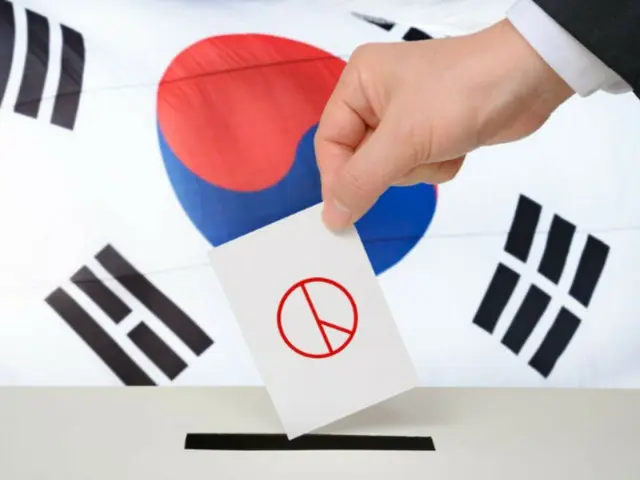The ruling party, which supports President Yoon, suffered a major defeat. South Korea's Yonhap News Agency reported that "President Yoon resolved the 'twisted' situation in the National Assembly, where the opposition party holds a majority, in this general election, held just before the halfway point of his five-year term.
"I wanted to accelerate the promotion of national policy issues, but I faced the harsh reality of the ruling party's crushing defeat," he said. In this general election, many pro-Japan lawmakers who supported the Yoon administration's efforts to improve relations with Japan were also nominated.
He lost in the election, and some Japanese media outlets have published articles expressing concern about future Japan-Korea relations and cooperation. This general election was positioned as a "mid-term evaluation" of the Yoon administration. Single-seat constituency (254 seats)
The election was contested through proportional representation (46 seats). Before the election, the opposition Democratic Party of Korea had 156 seats (including affiliated parties), while the ruling People Power Party had 114 seats (including affiliated parties), meaning that the opposition parties held the majority of seats in the National Assembly.
The focus of this general election was whether the divided state would be resolved. The vote was held on the 10th, and as mentioned above, the ruling party suffered a major defeat. The opposition parties were battling against the proposed constitutional amendments and the presidential election.
Although they did not reach the 200 seats required to pass a motion calling for the impeachment of Lee, they will still be able to hold the initiative in the political situation.
The head of the party apologized, saying, "The will of the people is always right. On behalf of our party, I apologize to the people for not being worthy of being elected by the people." He took the will of the people seriously and announced his resignation as chairman, saying he deeply regretted his actions.
In addition to Prime Minister Han Deok-soo, all senior presidential officials at the rank of chief secretary or above, except for the National Security Office, also announced their intention to resign. President Yoon also released a statement, saying, "I will humbly accept the will of the people in the general election.
"I will do my best to revamp national politics and stabilize the economy and the people's lives," he said. Meanwhile, Democratic Party leader Lee Jae-myung said of the landslide victory, "I am truly grateful for the support and encouragement for the party."
"I would like to say that this is not a victory for the party, but a great victory for our people," he said. He called on the winners to "always maintain a humble attitude and listen to the voice of the sovereign even after the election."
Regarding this general election, South Korea's Yonhap News Agency reported, "The ruling party won a landslide victory in the unified local elections in June 2022, but the public's reaction to this election, which is positioned as a mid-term evaluation of the Yoon administration, is
"The president, who has three years left in his term, is likely to have no choice but to re-establish the way he will run the country," the Chosun Ilbo said.
"The pension reform, as well as medical reforms such as increasing the number of doctors, are expected to become even more difficult in the future," the JoongAng Ilbo reported. In an editorial on the 11th, the newspaper referred to the Democratic Party of Korea. "The Democratic Party's landslide victory is due to the Yoon administration's mismanagement.
The driving force is the public's desire to speak out. In other words, the Democratic Party's landslide victory was not due to the fact that it received positive reviews for its regular activities in the Diet, but rather due to the reciprocal benefits that come with the government being judged.
"It would be more accurate to say that they have enjoyed the benefits immensely," he said. "Therefore, the Democratic Party should not become complacent or conceited about the results of this election."
It is desirable for the winner, Democratic Party leader Lee, to show a willingness to help the Yoon administration when necessary and to cooperate when necessary."
Diplomacy with Japan was not a major issue in this general election.
In the past, many of the key figures who supported the improvement of relations with Japan under the Yoon administration were defeated. One of them was Jeong Jin-seok, chairman of the Korea-Japan Parliamentary Friendship Association, which is responsible for parliamentary diplomacy with Japan, who sought a sixth term but was defeated.
He became the president of the federation immediately after the inauguration of the Yoon administration in 2022. With Chung losing the election, a new president is expected to be selected. Former Foreign Minister Park Jin also lost out. Park is the largest Japanese-Korean
In March of last year, he announced a solution to the former forced labor lawsuit issue, which had been a major issue for the country. He also worked hard to strengthen cooperation among the three countries of Japan, the United States, and South Korea. This time, he was aiming for his fifth term in office, but was defeated.
The succession of defeats by key figures in the Japan-friendly camp has led Japanese media to comment that "this will likely cast a shadow over future Japan-Korea relations" (Sankei Shimbun) and that "President Yoon's declining influence is
"It is unavoidable, and there is a risk that the movement to improve Japan-Korea relations will stagnate" (Fuji TV), "The impact on Japan-Korea relations is expected to be limited, but it remains a source of tension for the South Korean government in its efforts to improve relations" (Nihon
This has been reported in newspapers such as Keizai Shimbun.
2024/04/15 10:32 KST
Copyrights(C)wowkorea.jp 5

